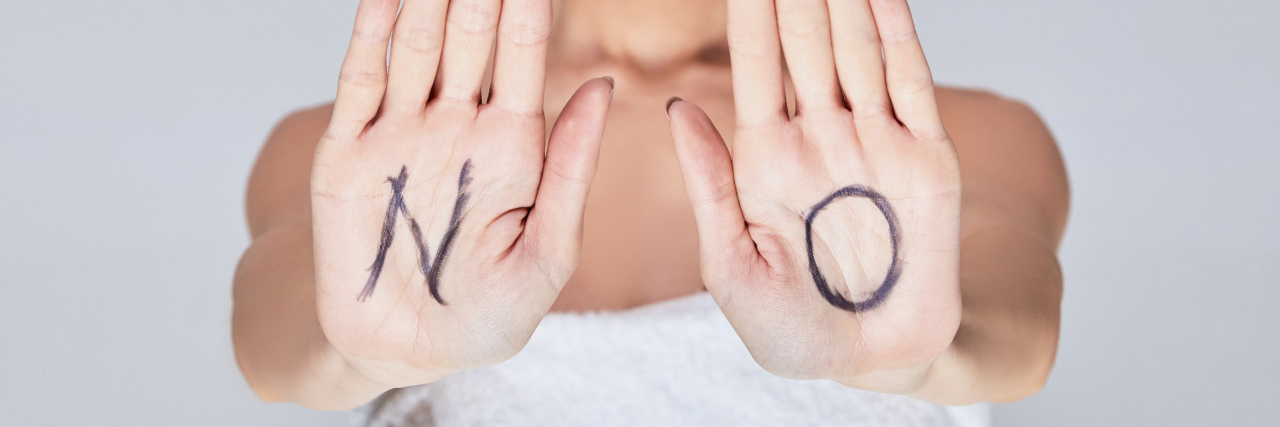The Power of the Word 'No' in My Life With Chronic Illness
Editor's Note
Join The Mighty’s Spoonie Life Hacks group to get tips for tackling everyday tasks from people living with chronic illnesses — or to share your own hacks!
The Oxford English Dictionary contains over 600,000 words. That’s more than 600,000 opportunities to take or give, uplift or tear down, build or destroy. 600,000 chances to either take control of your life, or give power over you to someone else.
As a Christian, I used five of those words to surrender my life to Christ. I chose to give up control and power over my life to my Lord and Savior, acknowledging my belief that His will for my life will far surpass any dream or desire I could ever hope to have become reality. I believe there is power is choosing to humble myself to the Lord and entrusting myself to His care. Control over my life was not seized by God, but rather, in His grace, He allowed me the gift of choosing to place my life in His hands.
While there are instances in my life, such as in my walk with Christ, where I have willingly given up control and power over some aspect of my life, I rarely give up control by choice. Rather, chronic illness, those who treat it, and society in general have seized much power over my body and my life. Most days, a sense of helplessness consumes me as I am reminded over and over again how little power and say I have over most things that happen to me.
As a minor, I have no legal say in whether or not I want something or whether or not I am OK with it being done to my body. As a patient, I have even fewer rights as most doctors and nurses see my body as public property to be poked and prodded freely and without my consent. When I am in a hospital bed, I am not asked if they can put an IV in. I am told to hold out my arm because they will be inserting an IV into my vein. When I do speak my opinion, I am often bulldozed out of the way, despite it being my body that is directly affected.
I have no control over what my body will do or feel like on any given day, and so to be treated as if I have no right to determine what I deem acceptable to be done to my body often switches between infuriating and depressing depending on that given moment in time.
My anger and outrage have led to a marvelous discovery, however. This finding is a simple thing, really. A two-letter word most learn at the age of 2. This magical revelation was the word “no.” Two simple letters that take the power over my life from someone else and place it back in my hands.
The word “no” is my key to taking back control over my body and reclaiming my rights not only as a patient, but as a human being. As a person, I have a right to tell someone to not do something to my body. I have the right and power to stop a nurse from using a certain vein for an IV, a doctor from examining me a certain way, and anything else that feels wrong, painful, or disrespectful to my body.
My status as a minor and/or patient does not discount the fact that my body is my own, and I should have the right to tell someone they cannot do something to it or treat it in a certain way. I might not be of age to consent to medical treatment, but I am old enough to speak up for myself and to tell someone “no” when they want to do something to me that I deem unacceptable.
Chronic illness has taken a lot from me, but I refuse to allow it to take control over my voice and my expectations to be treated with respect for no other reason than I am a person and deserve to be treated as such.
It has taken me almost 18 years to learn the powerful word most learn at the age of 2, but now that I know of it and its power, I refuse to be silent any longer and will continue to advocate for myself, my body, and my rights for so long as I am on this earth.
”This is my life…my story…my book. I will no longer let anyone else write it; nor will I apologize for the edits I make.” –Steve Maraboli
This story originally appeared on Chronically in Christ.
Getty image by Svitlana Barsukova.

